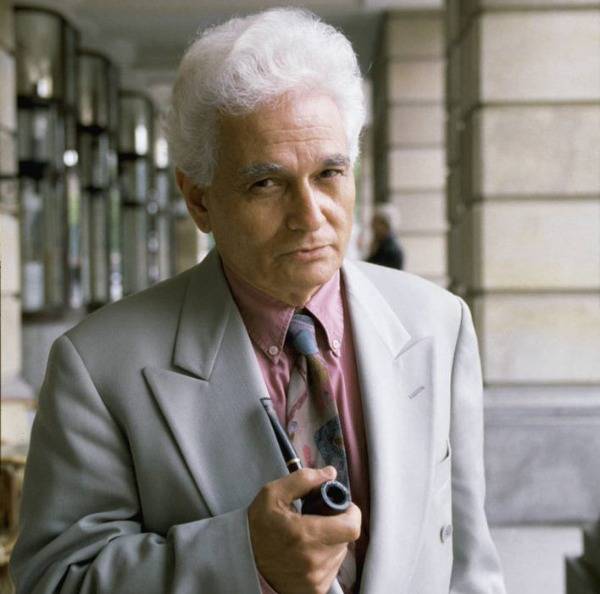
When Britain's phone hacking scandal broke in 2011, Rupert Murdoch - the CEO of News International - gave the defence that he knew nothing about the criminal activities in his media empire. This demonstrated a recurring pattern in history in which figureheads for major companies, political leaders and industry bigwigs plead ignorance to avoid culpability. In her book "The Unknowers: How Strategic Ignorance Rules the World" (Zed Books), writer and sociologist Linsey McGoey argues that power lies not in knowledge, but in the ability to convince others where the boundary between ignorance and knowledge lies.
What is strategic ignorance?
I define strategic ignorance as "the ability to exploit the unknowns in any environment in order to gain or to maintain power". But there’s a longer answer. The long answer is that it is defined in two main, different ways in the social sciences. Behavioural economists and psychologists, on the one hand, tend to define strategic ignorance in a psychological way. They see it as the personal avoidance of inconvenient or uncomfortable facts.
Sociologists and historians, on the other hand, usually view it more in line with my definition above. They view strategic ignorance as both an individual and a collective phenomenon. This helps to underscore the role of institutional power and institutional actors in preventing inconvenient facts from becoming more widely known or accepted.
My own definition was developed in 2007, in an academic article where I first introduced the phrase "strategic ignorance" to the field of sociology. Since then, I’ve been one of a group of scholars developing a new academic field known as "ignorance studies". Seriously, the field does exist, even though people sometimes chuckle at the phrase.
Does it work as a political or corporate tactic? What are some recent examples?
It works all the time. Ignorance really is blissful, especially for the powerful. You can see examples of strategic ignorance in Monsanto and ExxonMobil’s corporate tactics to hide evidence of environmental harm, for example.
But I’m also glad that you highlight the "political" in your question, because politics gets left out a lot of the time. People have tended to focus more on how corporate actors such as big tobacco, big pharma and big food have all engaged in the strategic production of ignorance. This can sideline the problem of strategic ignorance by governments or the judiciary. It’s one of the reasons why I argue that it is important not to treat strategic ignorance as simply a psychological problem at the individual level. I think it’s better to suggest that different groups in society have enhanced political power to make the deliberate avoidance of inconvenient truths appear more legitimate or defensible than it really is.
To give one example, when he was prime minister, Tony Blair put pressure on the former attorney general Lord Goldsmith to halt an investigation into bribery at BAE Systems. Blair didn’t want the embarrassment of having corruption at a major British firm exposed, and his effort to shut down the legal investigation is a type of strategic ignorance.
You write about strategic ignorance as it relates to the idea of the free market. Could you explain?
I suggest that the very term "free market" is a type of micro-ignorance because it conceals more than it reveals by purporting to reflect a phenomenon that has never existed and can never exist in actual economic reality.
Of course we have never had a "free market", and more importantly, the largest imperialist super-powers of the modern age, and especially the US and UK, did not get rich through a "free market", but through different types of government interventionism and protectionism that have long benefited society’s richest groups, often at the expense of exploited workers across the world.
This fact is both widely known and oddly ignored even today in economic theory and economic policy-making. In the book, I explore the history of economic thought over a 200-year period, from late enlightenment figures including Burke and Wollstonecraft in the 18th century, through classical liberals such as Tocqueville and Bastiat in the 19th century, through to 20th century figures such as Friedrich Hayek, to understand the ways that dominant economic theories of economic growth have obscured wider recognition of the role of governments in creating economic markets over modern history.
What is the "ostrich instruction"?
It’s an informal way to refer to an important legal principle, which is that deliberate avoidance of knowledge about one’s own illegal actions should not be a valid defence in law. It’s one of the reasons why, just over 15 years ago, American executives at the energy company Enron were found guilty even though their direct role in malfeasance at Enron wasn’t clear. They should and could have known about fraud, and they were found guilty.
Enron has been pointed to as proof that wilful ignorance does not pay. But in my book I stress that that Enron is a fairly isolated case. As a number of other people have pointed out, from journalists Matt Taibbi and Jesse Eisenger to legal scholar Rena Steinzor, US authorities have had an abysmal record of successful prosecution of white-collar crime in recent decades.
An American legal scholar based in the UK, Alexander Sarch, is doing important work on this topic. But he is an exception, and I’m a little critical of mainstream legal scholarship in my book. I suggest that legal scholars themselves have been acting ostrich-like about recent shifts in the law. For example, the old adage "ignorance of the law is no excuse" is increasingly waived in US courts when it comes to complex financial and tax crimes. This shift is one of the reasons why I argue that for many powerful and rich people, ignorance really is legal bliss.
If strategic ignorance often involves powerful people pretending not to know something (eg about illegality at their company), why can't something be done about it? Why is it so effective?
Strategic ignorance is effective because it is hard to detect; hard to point out without seeming conspiratorial; and hard to prosecute because perpetrators successfully efface the evidence that could indict them, or, importantly, they thwart inconvenient evidence from emerging in the first place, like Blair’s halting of the BAE Systems inquiry.
Most troublingly, we don’t empirically know how often strategic ignorance works and just how effective it is, because the most "successful" examples of strategic ignorance are, quite literally, the tactics that work so well that they can never be detected.
Why has strategic ignorance - and its power - been largely ignored?
In some ways, it hasn’t always been ignored. The value of ignorance to powerful groups is a major trope in literature, for example. Henrik Ibsen’s play, The Enemy of the People, is about a medical officer who is treated as "enemy" of a small spa town in Norway because he truthfully explains that their spa water is contaminated. Ibsen prophesied today’s climate change denialists, in other words.
The problem is not exactly that "strategic ignorance" has been ignored, but that for centuries the people who have been most vocal about the value of ignorance to powerful groups have come from marginalised groups themselves, and so it is convenient for the powerful to ignore them. For example, scholars such as Mary Wollstonecraft in the late 18th century and W.E.B. Du Bois in the late 19th century have long pointed out that powerful people "veil" themselves from unsettling realities.
Wollstonecraft’s Rights of Men essay – written before Thomas Paine’s essay with the same name – came up with one of the earliest modern definitions of "confirmation bias", centuries before psychologists started to study the problem systematically, though lab experiments, as they are doing today. Lately, people like Cass Sunstein and other leading "nudge" scholars are starting to examine different strategies of ignorance at the individual level, but, a little ironically, they’re mostly ignoring earlier sociological and philosophical work on the topic, claiming a primacy to their arguments that is inaccurate.
We hear a lot about how we live in a "post-truth" era. Has our relationship to ignorance and knowledge changed?
I don’t think so. I think it’s a frustrating myth to assume we are living in a uniquely post-truth era. Going back at least to David Hume, philosophers have pointed out that even seemingly "objective" facts require a degree of subjective interpretation in order to determine the underlying causality of an action. For this reason, Hume is one of the first scholars to see that what we understand as knowledge and ignorance are structured by social conventions and individual bias. The boundaries between knowledge and ignorance are constantly shifting, and the power to monopolise what counts as "truth" has long underpinned the economic and political authority of different groups throughout history.
This relates to another point in my book, which is that strategic ignorance is not always a morally bad thing. Sometimes the intentional exposure of a dominant group’s ignorance can lead to positive, emancipatory outcomes. Every successful social movement throughout history has been based on exposing a dominant group’s ignorant assumptions about human realities, like the assumption that apartheid is a just form of rule, or that slavery is morally defensible.
So, my specific definition of "strategic ignorance" is new, but the reality it speaks to is old: the fact that the power of any dominant group typically functions through strategic ignorance, through the ability to select which voices and forms of evidence to acknowledge and which evidence to dismiss.
You distinguish between macro and micro ignorance. Could you explain?
I define micro-ignorance as individual acts of ignoring, and macro-ignorance as the sedimentation of micro-ignoring into structural blind-spots that obscure uncomfortable truths from being more widely known. So, Blair shutting down the BAE Systems investigation is an example of micro-ignorance. But it’s not an isolated act – it has epistemological ripple effects. The halting of the investigation compounds the pretence that no corruption took place, and this contributes to a persistent and quite insidious form of macro-ignorance, which is the debatable belief that western governments are less corrupt than developing countries. Of course they’re just as corrupt, they’re just better at hiding it.
Is the old adage true - is knowledge power?
Yes and no. Without doubt, knowledge can be useful in consolidating power, but so is ignorance. I suggest that true power lies in the ability to convince other people about where the boundary between ignorance and power lies. Take, for example, my book’s subtitle: "strategic ignorance rules the world". What do I mean by this? Certainly, I don’t mean that there is some secret cabal of "unknowers" pulling all the strings everywhere. No, I mean that strategic ignorance rules the world in the sense of creating boundaries and categories for which sorts of human activities are deemed harmful and which activities are not. Different tactics of strategic ignorance shape our understanding of legitimacy and criminality, but those categories are often arbitrary, in that, to borrow from Hayek, they offer the "pretence of knowledge" because they represent only a small sliver of the world’s overall store of knowledge.
A key point I make is that that the boundary between knowledge and ignorance is not impermeable. It is open to political appropriation by less powerful groups. In other words, calling attention to the problem of strategic ignorance by elite actors – and demanding more accountability from those actors – can lead to a new "war of position", in a Gramscian sense. In my book, I term this argument the Lorde principle, after Audre Lorde, in homage to earlier academic and activist work that my argument builds upon. I suggest that the Lorde principle encompasses the way that unknowing can be a revolutionary force for good.

